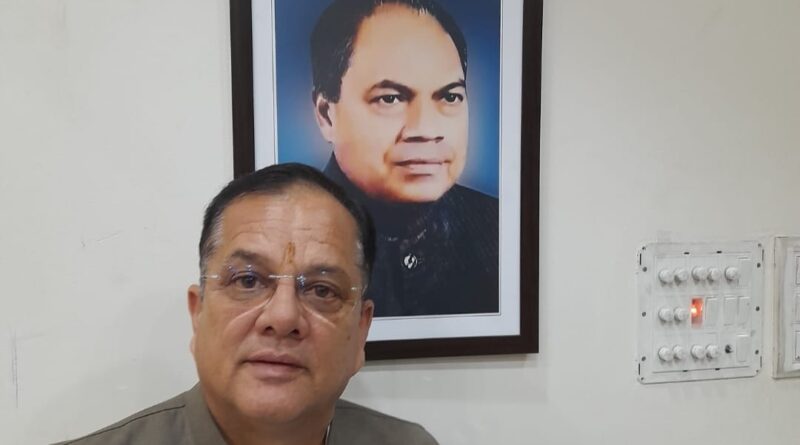Professor Narayan Chand Parasha fought tirelessly for the identity of Pahari language
There have been several attempts to standardize the Pahari (Himachali) language, in which attempts were made to combine the Pahari dialects spoken in Himachal Pradesh such as Kangri, Mandiyali, Chambiali, Mahasu Pahari, Sirmauri, etc. into a string. But it is the late Narayan Chand Parashar who particularly stood out within the Pahari language movement. Pahari Day celebrated on 1st November should be dedicated to people like him, who devoted their whole life in the preservation of Pahari (Himachali) language.
As both a politician and a linguist, he fought tirelessly for the identity of Pahari (Himachali) in the state. He was a three-time Lok Sabha MP representing the Indian National Congress and received the Best Parliamentarian Award in 1987. Professor Parashar represented India several times in the sessions of the United Nations General Assembly during the 1980s.
Professor Parashar also became the Education Minister of Himachal in 1993, and along with Late Virbhadra Singh ji developed a new education model which won national and international acclaim including the praise of Nobel laureate Dr. Amartya Sen.
As a linguist, his motivation for promoting Pahari (Himachali) as a language was to reinforce Pahari cultural identity. It began when Dogri-Himachal Sanskriti Sangam was formed in 1966 under the patronage of Dr. Karan Singh, who created a false Dogri-Pahari identity, which included parts of Himachal and Jammu. The Sangam was formed after the merger of six societies from Jammu, Himachal and other parts of India for the overall development of Dogri language.
The Sahitya Akademi recognized the language in 1969 and soon thereafter a three-day All India Dogri Writers’ Conference was organized in Delhi between 29 November and 1 December 1970. During this conference, resolutions were passed calling on the people of major parts of Himachal Pradesh and Jammu to record Dogri as their mother tongue in the 1971 Census and demanding the inclusion of Dogri in the Eighth Schedule of the Constitution. Besides this, proposals were also made to start Dogri education in schools and to set up Dogri Department in Jammu University and Himachal Pradesh University. While the above proposals were opposed by both Himachal Pradesh politicians and linguists, similarly politicians and linguists of Pir Panjal region of Jammu and Kashmir have opposed the fact that Dogri was given preference over hills.
Narayan Chand Parashar played an important role in countering Dogri hegemony and in response formed the Himachal Pahari Sahitya Sabha. A series of meetings took place with Pahari writers from Himachal Pradesh in Shimla and New Delhi during 1970 and 1971, through which he consolidated his Pahari identity among the academic community. During this period, he was instrumental in passing a resolution of the Himachal Pradesh Legislative Assembly in December 1970, which resulted in the recognition of Pahari as a language in its own right with its own category instead of merging it into Dogri.
In 1989, he was instrumental in releasing the Pahari Hindi dictionary, which was released by the then Chief Minister Virbhadra Singh.
Professor Parashar also wrote several books in Pahari, including a biography of freedom fighter Baba Kanshi Ram, popularly known as Pahari Gandhi. As a follower of Buddhism, Professor Parashara translated several Buddhist texts into the Pahari, including the Dhammapada, the Bodhisattvakaryaavatara and the Lotus Sutras.
He founded and edited Him Dhara which was India’s first Pahari (Himachali) newspaper. His tireless dedication to promote his mother tongue culminated in the movement to include Pahari (Himachali) as the official language of India in Schedule 8 of the Indian Constitution.
Unfortunately, due to his sudden demise on February 21, 2001 at the age of 66, the movement was weakened with no concerted sustained efforts for the recognition campaign.




Pingback: Baba Kanshiram, Pahari Gandhi, a revolutionary poet from Himachal - Heritage Times